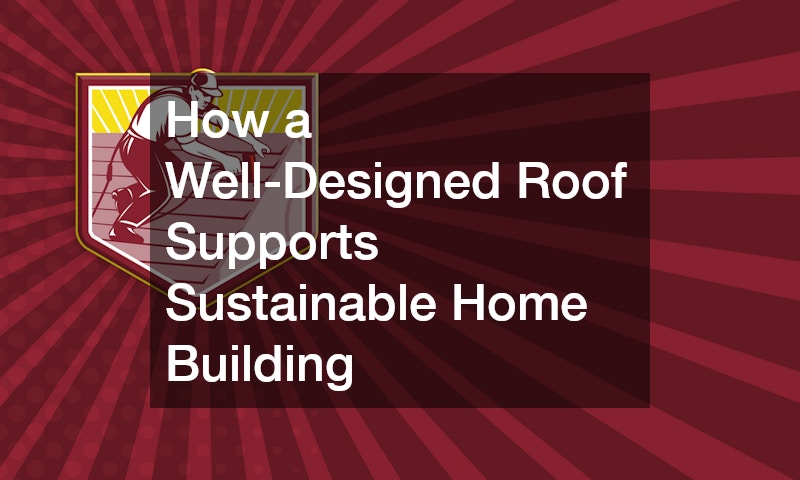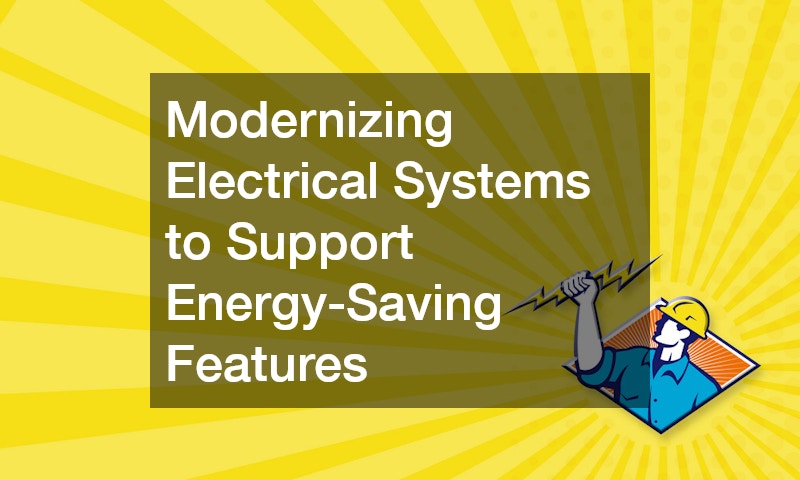
In today’s world, energy efficient house construction has evolved from being a mere trend to a necessity. With the need to reduce our carbon footprint and minimize energy costs, innovative building designs and techniques are paramount. This article delves into various components and considerations to enhance the energy efficiency of homes.
Energy efficient house construction not only contributes to environmental sustainability but also offers substantial savings over time. Homeowners today are more conscious of the ecological impact of their homes and the financial benefits of reducing energy consumption. By implementing energy efficient methods, you can enjoy a comfortable living space while keeping energy bills low.
This comprehensive guide covers topics from selecting durable exteriors and optimizing climate control systems to financing upgrades and choosing eco-friendly materials. We explore how each factor plays a crucial role in developing an energy-efficient home. Join us as we navigate the world of energy efficient house construction.
Selecting Durable Exteriors to Enhance Energy Efficiency
The exterior of a home plays a crucial role in energy efficient house construction. Selecting durable siding options can maintain your home’s insulation properties and weather resistance, helping to keep temperature-regulating costs down. Consulting with a reputable home siding contractor is vital to ensure long-lasting, energy-saving solutions.
Materials such as fiber cement, brick, and engineered wood are popular choices for their robustness and low maintenance. When combined with appropriate insulation, these materials help to keep your home warm in the winter and cool in the summer. Ensuring durability in exterior materials means fewer repairs and replacements, reducing the overall environmental impact.
Additionally, aesthetic appeal should not be compromised when selecting durable exteriors. Today, many energy-efficient siding options come in a wide array of colors and textures to match your aesthetic preferences. Thus, an efficient exterior solution can contribute to both energy savings and curb appeal.
How a Well-Designed Roof Supports Sustainable Home Building

A well-designed roof is paramount in energy efficient house construction due to its significant role in weather protection and insulation. Choosing affordable roofing materials that offer durability and insulation can drastically reduce your home’s energy consumption. Energy-efficient roofing systems often incorporate reflective surfaces that minimize heat absorption.
Consider the roof’s color and material for maximum energy savings; lighter colors reflect more sunlight, helping to keep your home cooler during hotter months. Materials such as metal, clay, or composite shingles can offer greater efficiency compared to traditional shingles. A well-constructed roof should be paired with proper attic insulation to maximize its energy-saving potential.
Moreover, integrating solar panels where applicable can further enhance your home’s sustainability. Solar energy provides a renewable power source that reduces dependency on fossil fuels. Collaborating with roofing and solar energy experts ensures you’ll have a synergetic setup that enhances your home’s efficiency.
Keeping Your Home Sealed and Protected for Maximum Efficiency

Ensuring your home is sealed effectively is essential in energy efficient house construction. Gaps and cracks can significantly contribute to energy loss, leading to higher utility bills and reduced comfort. Effective sealing and weatherproofing are integral to maintaining the desired indoor temperature.
Professional services such as pest control providers can assist in sealing these openings, which not only prevent energy loss but also deter pests. This dual benefit enhances both energy efficiency and the overall safety and cleanliness of your home. It’s imperative to conduct regular inspections and maintenance to address any new sealing issues that may arise.
In addition, incorporating energy-efficient windows and doors with proper seals prevent air leakage. Opting for triple-lane glass and secure door sealing can further enhance this prevention. Together, these changes contribute to a better-sealed home, optimizing comfort and energy efficiency.
Optimizing Climate Control Systems for Lower Energy Costs
The role of effective climate control in energy efficient house construction is undeniable. Modern HVAC systems designed by expert HVAC contractors can substantially impact your home’s climate control efficacy. Opt for systems with high energy efficiency ratings to achieve optimal thermal comfort while minimizing energy use.
Smart thermostats are an excellent addition to optimize HVAC efficiency. These devices allow for precise temperature control and scheduling, reducing unnecessary energy consumption. When paired with an efficient HVAC system, they pave the way for significant energy savings.
Regular maintenance is necessary to ensure these systems continue operating efficiently. Scheduled check-ups with your HVAC contractors can prevent small issues from becoming costly repairs. Cleaning, adjusting, and sealing ductwork are additional measures to uphold efficiency in climate control systems.
Transitioning to Cleaner Heating Options for Eco-Friendly Living
Switching to cleaner heating options is an important step in energy efficient house construction. Traditional heating fuels like natural gas or home heating oil can be replaced with more sustainable alternatives. Consider heat pumps or radiant heating systems, which offer high efficiency and reduced emissions.
Incorporating renewable energy sources, such as solar thermal panels, can also supplement your heating requirements. These systems harness the sun’s energy to heat water or air, providing an eco-friendly and cost-effective solution. The combination of these technologies aids in reducing dependence on non-renewable energy sources, promoting greener living.
Consulting with knowledgeable contractors when transitioning to cleaner heating options ensures the system is tailored to your home’s specific needs. Proper installation and sizing are critical to achieving maximum efficiency and performance in your new system. As a result, you can enjoy a comfortable, eco-conscious home environment.
Modernizing Electrical Systems to Support Energy-Saving Features

Updating your electrical system in energy efficient house construction can significantly enhance your home’s overall efficiency. Home rewiring by experienced residential electricians can support modern appliances and technology designed to reduce energy use. It’s crucial to have wiring systems that safely and effectively handle increased power demands.
Energy-efficient lighting systems, such as LED bulbs, can be installed during the rewiring process to minimize electricity consumption. These bulbs have a longer lifespan and use significantly less energy compared to traditional lighting solutions. Additionally, integrating smart home devices can further optimize energy management.
Consulting with local electricians ensures that your modernization efforts comply with safety standards and maximize energy savings. Professional installation of new electrical systems also reduces the risk of faults and increases reliability and efficiency. By upgrading your electrical systems, your home can support a variety of energy-saving features for years to come.
Partnering with Experts to Ensure Your Home Runs Efficiently

Energy efficient house construction often requires collaboration with various professionals to ensure optimal performance. Homeowners benefit significantly when working with home siding contractors, HVAC experts, and insulation specialists. These partnerships ensure each aspect of the home’s construction and efficiency is addressed professionally.
Choosing the right experts requires doing thorough research and considering recommendations from trusted sources. Experience and customer testimonials can provide insight into a contractor’s ability to deliver high-quality services. As a result, collaborating with the right team ensures lasting energy savings and comfort in your home.
It’s important to communicate your specific goals and priorities with your chosen specialists. By understanding your vision, they can provide tailored advice and solutions to meet your energy efficiency objectives. A coordinated approach leads to a more seamless integration of systems and a successful construction outcome.
Financing Energy Upgrades to Boost Home Sustainability
Investing in energy efficient house construction and upgrades can offer substantial long-term savings, but the initial financial outlay can be significant. Fortunately, numerous renovation loan options are available to facilitate the transition to an energy-efficient home. These financing solutions can make upgrading more accessible and manageable for homeowners.
Many financial institutions offer attractive terms for renovation loans targeting energy efficiency projects. These loans often come with incentives based on the predicted energy savings of your investments. Such financial support allows you to undertake comprehensive energy upgrades without compromising other financial priorities.
It is important to evaluate different loan options and their conditions to find the best fit for your needs. Consulting with a financial advisor can also provide clarity and guidance in making informed decisions. By leveraging renovation loans, you can confidently invest in energy efficiency improvements that enhance the sustainability and value of your home.
Improving Thermal Performance with Smart Insulation Choices
Insulation is key to maintaining a comfortable environment in energy efficient house construction. Proper insulation prevents energy loss, reducing heating and cooling costs significantly. Smart insulation choices ensure that your home is well-equipped to handle temperature fluctuations effectively.
Identifying the appropriate insulation type — fiberglass, spray foam, or cellulose — depends on your home’s specific build and requirements. An insulation specialist can advise on the best choice to meet your energy efficiency goals. Properly installed insulation not only increases energy efficiency but also enhances overall comfort.
Moreover, ensuring that all areas, from walls to attics, are adequately insulated can make a considerable difference. Addressing these aspects during construction or renovation ensures efficiency from the outset. Continuous assessment of insulation performance will help maintain an optimal thermal environment long-term.
Installing Advanced Systems for Smarter Energy Use
Harnessing technology in energy efficient house construction unlocks significant energy-saving potential. Advanced home automation systems enable intelligent energy use, optimizing consumption patterns, and reducing waste. These systems provide detailed insights into energy use, allowing homeowners to adjust their habits accordingly.
Smart grids and meters are increasingly being integrated into residential setups. They provide real-time data on energy use, enabling more efficient management and conservation strategies. Combining these technologies with energy-efficient appliances maximizes overall benefits in energy savings.
Installation and integration of these systems require the expertise of skilled professionals. Local residential electricians can provide the necessary knowledge and ensure that advanced systems function seamlessly together. Ultimately, employing smart technology enables a more sustainable, cost-effective way of living.
Balancing Budget and Efficiency in Building Materials
Finding a balance between budget constraints and achieving energy efficiency is vital in energy efficient house construction. The right choice of building materials can lead to substantial energy savings without excessive initial costs. Considering both price and performance ensures a well-rounded approach to construction.
Cost-effective options like recycled materials and locally sourced products offer both environmental and financial benefits. These materials often blend well with other energy-saving strategies, providing comprehensive efficiency solutions. It’s essential to evaluate the long-term savings potential against upfront expenditure.
Consultation with a knowledgeable builder can guide you through these decisions, helping balance affordability with energy performance. Tailored advice and wise material selection can lead to a sustainable, efficient home without compromising design or function. This strategic approach reduces costs and environmental impact simultaneously.
Designing Heating and Cooling Systems for Sustainable Homes
Heating and cooling systems are integral components of energy efficient house construction, impacting comfort and energy use. Designing these systems with sustainability in mind can lead to substantial energy reductions and environmental benefits. Proper sizing, installation, and technology integration are key considerations for achieving efficiency.
Geothermal heating systems, split-system air conditioners, and radiant floor heating are examples of efficient options that minimize energy consumption. When paired with high-quality insulation, these systems maintain desirable temperatures with minimal energy use. Consulting with HVAC specialists ensures that system design and implementation align with sustainability goals.
Additionally, incorporating energy-efficient zoning solutions allows precise control of different areas within your home. This customization maximizes the efficiency of your heating and cooling systems, preventing energy waste. Overall, these approaches lead to a more comfortable living space while adhering to eco-friendly principles.
Using Eco-Conscious Materials to Reduce Waste and Energy Loss
Utilizing eco-conscious materials is a cornerstone of energy efficient house construction. These materials reduce environmental impact by minimizing waste and energy consumption throughout the lifecycle of the home. Sustainable materials offer durability and performance while meeting environmental standards.
Options such as bamboo flooring, reclaimed wood, and recycled metal roofing integrate seamlessly into modern home designs. Moreover, they contribute to the home’s energy efficiency by offering excellent thermal properties that complement insulation and HVAC systems. Choosing these materials demonstrates a commitment to an environmentally friendly lifestyle.
It’s advisable to work closely with architects and builders who prioritize sustainability and energy efficiency. Their expertise can help identify the most effective materials and incorporate them effectively into your project. By selecting eco-conscious materials, you support a sustainable future for both your home and the planet.
In conclusion, energy efficient house construction is a multifaceted approach that integrates technology, materials, and expert collaboration. Each element, from siding to climate control systems, significantly influences the home’s overall energy performance. By carefully considering and implementing these strategies, you can create a home that is not only comfortable but also cost-effective and environmentally friendly.
Taking proactive steps in enhancing energy efficiency ensures long-term benefits for both the homeowner and the environment. Reduced energy bills, increased home value, and a smaller carbon footprint are just a few rewards of these efforts. As society moves toward sustainability, energy efficient house construction will continue to play a pivotal role in home building.
As you venture into this journey, remember that careful planning and expert advice are key to successful energy efficiency improvements. By committing to these principles, you’re contributing positively to a more sustainable world while enjoying a superior quality of life. Investing in energy efficiency is an investment in the future, and the benefits are substantial and wide-reaching.




